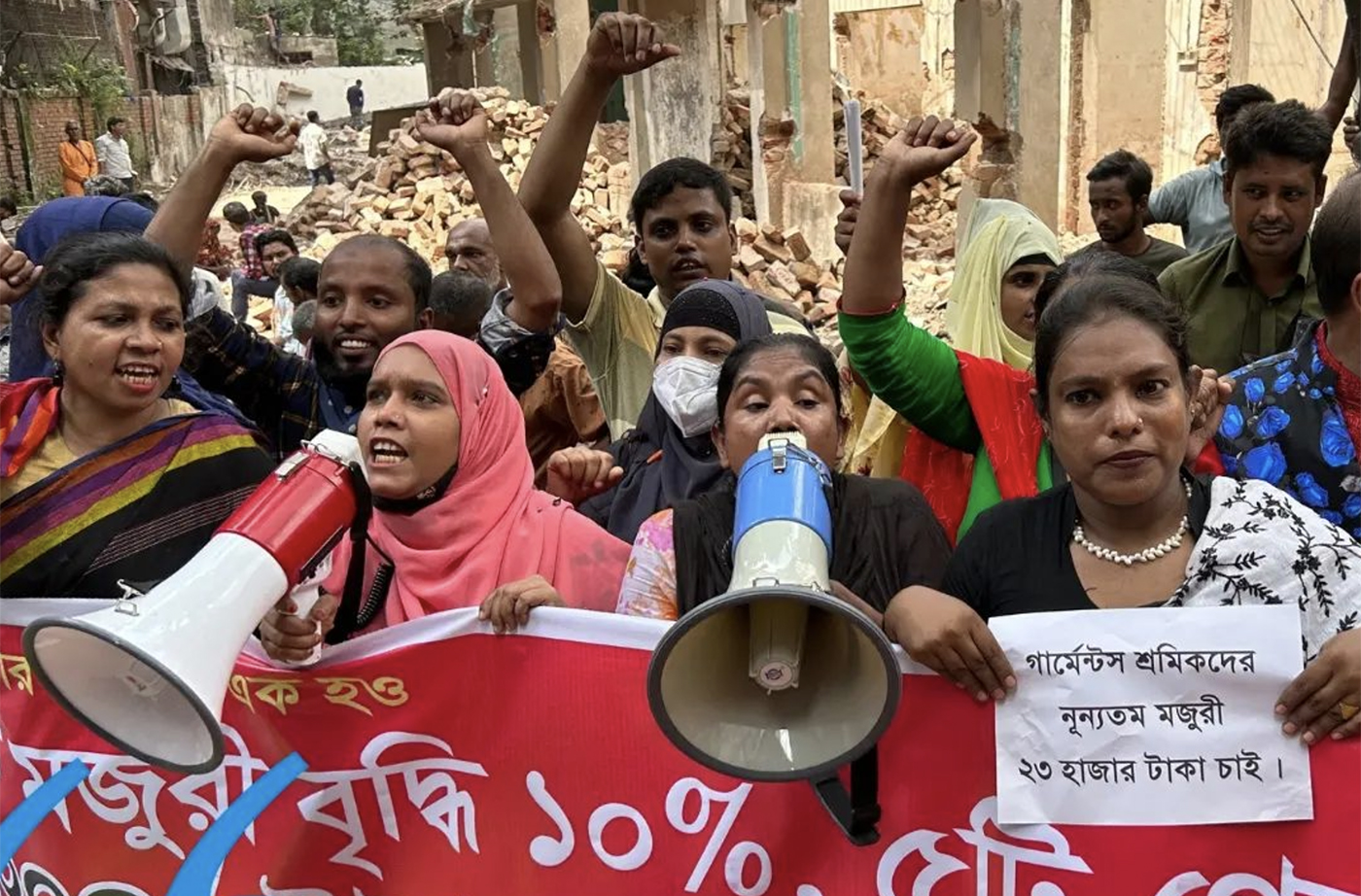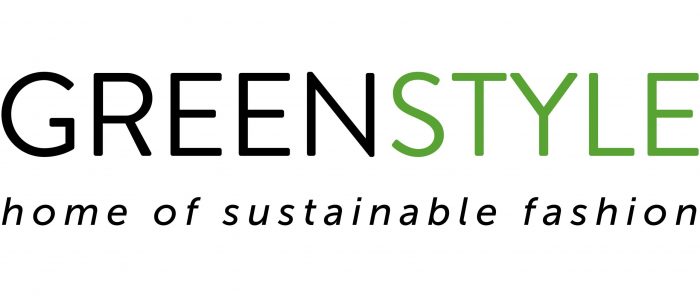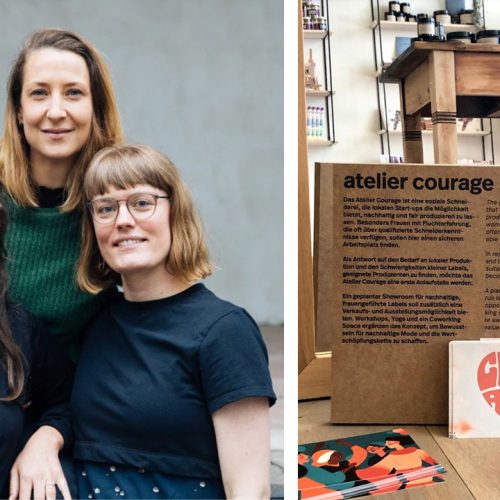Solidarity with the textile workers in Bangladesh
In use? The police, tear gas, a burning bus. Chaos. Understandable anger. Despair. Fright.

This system of exploitation, disregard and mistreatment is only possible because we support cheap fast and ultra fast fashion. These clothes are too cheap. Too cheap to pay textile workers the wages they need to survive. Stop buying cheap sh*t!
A quick look at systematic exploitation
Bangladesh is one of the poorest countries in the world.
Poverty makes cheap wages possible. You depend on it.
Bangladesh is the second largest garment exporter in the world
80 percent of Bangladesh’s export earnings come from the textile industry
Over 4 million people, including 3.2 million women, make their living from the textile industry
Seamstresses have to work up to 100 hours of overtime per month to make a living
And why?! So that we in the Global North can buy masses of cheap (st) clothing that is far too often thrown away after a very short time.
A living wage is a fundamental human right and not a “nice to have”. We cannot allow this to continue.
Let’s take responsibility
Almost 70 years ago, the textile industry relocated to the Global South because we no longer wanted to produce in this country. We caused the disaster there and must therefore take responsibility. Workers need a living wage to support their families. This works especially if we as consumers, as well as the large textile producing companies such as H&M, Mango, Zara / Inditex, Primark, Shein, Boohoo, are prepared to spend more money. The consumers by buying clothing that was produced fairly and the companies for the people who produce their goods.
That’s why we need a sensibly drafted supply chain law
The workers need our support.
For this reason:
Be loud and share this information. Good sources include Delara Burkhardt, our voice in the European Parliament, when it comes to textile grievances and rights along the supply chain, as well as the Tagesschau
Support clubs like FEMNET
Talk about these topics in your circle of friends and at work
And especially: Stop buying cheap sh*it!
How can we reduce/prevent child labor? By paying parents decently.
PS: The International Labor Organization estimates the number of working children at 160 million and assumes that 50 percent of them are under twelve years old.
Bangladesh has huge importance as a textile producing country. For fast fashion as well as for luxury brands. This global importance MUST finally be reflected in the respect and wages for textile workers.
Are you ready?
I sometimes doubt that we really want to change anything. For the past year, we have been campaigning with the Good Clothes Fair Pay campaign to ensure that companies are obliged to pay living wages along the supply chain. We would have needed 1 million votes in Europe. We received a little over 200,000. Why is that? The campaign was good. There were great partners. We were loud. And yet this sobering result.
Let’s change that. Stop buying cheap sh*t!
In the meantime there was a “stage victory”
Textile workers in Bangladesh are to receive more pay from December. The government has decided this. 190 euros were demanded for the minimum wage, which was previously 68 euros. Now it will be increased by at least 60 percent to 106 euros per month.
And now?
Sounds good at first, but it’s not that easy. Because now factory owners (there are around 3,500 factories in Bangladesh) are turning to H&M, ZARA SA & Co. to get financial help for the additional costs caused by the increased wages.
Some major fashion brands such as adidas, Hugo Boss and Levi Strauss & Co. had announced in an open letter in recent weeks and months that they wanted to “commit to the implementation of responsible purchasing practices”. Factory owners therefore hope that they will keep their word and bear the increased wage costs.
That also sounds good, but it’s not easy either. Despite these announcements, there are still tough price wars between factory owners and customers. They are still not prepared to pay higher prices and are threatening to change suppliers.
For this reason:
This stage victory for the textile workers must not end in a catastrophe, with the large fashion companies shirking their responsibility and continuing to produce cheaply in another country.
ZARA SA @ca @hm @primark @zalando @esprit @aldinord – take responsibility for the workers who make your goods. Pay lower management salaries, save on your marketing measures and give the textile workers what they deserve:
A WAGE THAT YOU CAN LIVE ON.
And that’s exactly why the protests continue. A minimum wage of 195 euros is not too much to ask. Numerous factories remain closed. The workers are on the streets demanding the wage increase they deserve.
Please copy this post, share it. Take snippets and tag the brands mentioned above and anyone else who makes profit at the expense of people and publicly call on them to take responsibility for their supply chain.
Let’s be loud together.
Thanks. *mirjam
Source: @Femnet_ev @tagesschau @euparlament @delarabur








